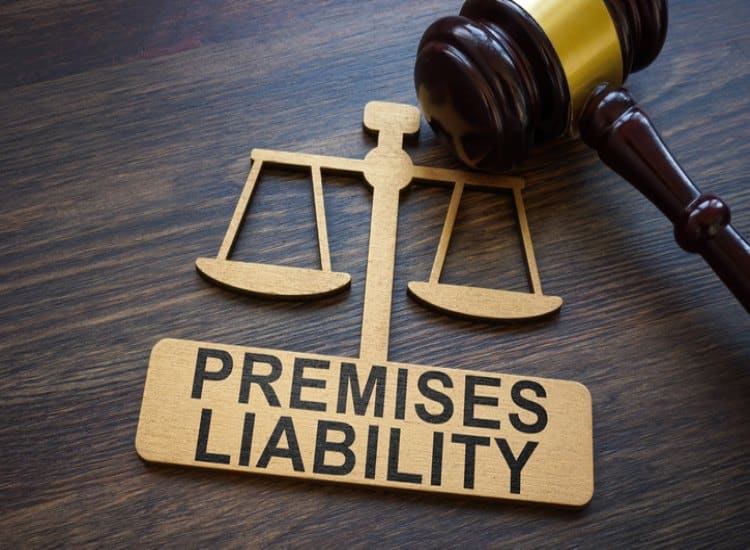Accidents can happen anytime, anywhere. That’s why understanding the principles of premises liability law is so important. Whether you’re a property owner, a visitor, or a tenant, knowing your rights and responsibilities under the law can significantly impact how you interact with the spaces around you.
Premises liability law is the legal principle that holds property owners and occupiers responsible for injuries and accidents that occur on their property. This law covers a wide range of incidents and resulting injuries. The crux of premises liability law is the “duty of care” that property owners owe to those who enter their premises. This duty isn’t absolute, but it requires property owners to maintain a reasonably safe environment to avert preventable injuries.

Different Categories of Legal Statuses in Premises Liability Cases
Landowners owe a different duty of care based on the visitor’s legal status. Typically, visitors fall into three categories:
- Invitees enter a property for business purposes, such as customers walking into a store. Property owners owe the highest duty of care to invitees, ensuring their safety from known and foreseeable hazards.
- Licensees include social guests or mutual guests who are on the property for non-commercial reasons. Property owners must warn licensees of known dangers but aren’t necessarily responsible for inspecting the property for undiscovered hazards.
- Trespassers enter a property without permission. The property owner’s duty to trespassers is minimal, but they should still refrain from willful or wanton harm.
Common Types of Premises Liability Incidents
Premises liability encompasses a broad spectrum of cases with unique circumstances and potential injuries. Here are some examples:
- Slip and fall accidents are common with icy conditions, wet floors, or uneven surfaces, leading to injuries like hip fractures, head injuries, or sprains.
- Swimming pool accidents can result in drowning, near drowning, or spinal injuries due to diving into shallow water.
- Faulty equipment, such as broken elevators, malfunctioning escalators, or collapsed ceilings caused by poor maintenance, can result in severe injuries like broken bones, head trauma, or fatalities.
- Inadequate security leading to assaults or robberies may cause physical and psychological trauma.
- Toxic substance exposure includes contact with hazardous chemicals or mold, which may cause respiratory issues, burns, or long-term health complications.
- Playground and recreational injuries spurred by poorly maintained playground equipment may lead to children sustaining fractures, head injuries, or worse.
Establishing Liability
Determining the responsible party in a premises liability case revolves around the concept of negligence. The person to blame is typically the one who owns, occupies, or manages the property, which may include:
- Property owners
- Tenants or renters
- Property management companies
- Businesses operating within the premises
- Contractors or maintenance firms
Liability is established based on whether the responsible party knew or should have known about the hazardous condition and failed to rectify it, leading to the injury. To establish a premises liability claim, the injured party must demonstrate the following elements:
- Their legal status on the property (invitee, licensee, or trespasser)
- The existence of a hazardous condition
- The property owner’s knowledge or negligent ignorance of the danger
- A direct link between the hazardous condition and the injury
Potential Damages in a Premises Liability Case
The compensation available to premises liability plaintiffs depends on the circumstances surrounding the accident. You may be able to claim the following damages:
- Medical expenses, including hospital stays, surgeries, medications, physical therapy, and ongoing medical care
- Lost wages due to time off work, which can include loss of future earning capacity
- Pain and suffering caused by the injury
- Punitive damages, available in the case of gross negligence, to punish the wrongdoer and deter similar conduct in the future
The Role of a Premises Liability Law Firm
Premises liability cases can be complex, so working with a skilled attorney is crucial. This professional can help in the following ways:
- Evaluate your case
- Gather evidence
- Determine liability
- Provide legal representation
- Negotiate a settlement
- Prepare for trial if a settlement can’t be reached
- Provide client support and guidance every step of the way
HSD Law: Your Legal Partner for Premises Liability Claims in Fort Collins
Have you been injured on someone else’s property? The collaborative team at HSD Law is here to help. We serve Northern Colorado with honesty and integrity, drawing on extensive litigation experience to increase the chance of a fair settlement or judgment in your case. We have a unique advantage in that many of our attorneys have previously worked for insurance companies. This insider knowledge positions us perfectly to advocate on your behalf. To request a free, no-obligation consultation at our premises liability law firm in Fort Collins, please contact us at 970-221-2800 today.